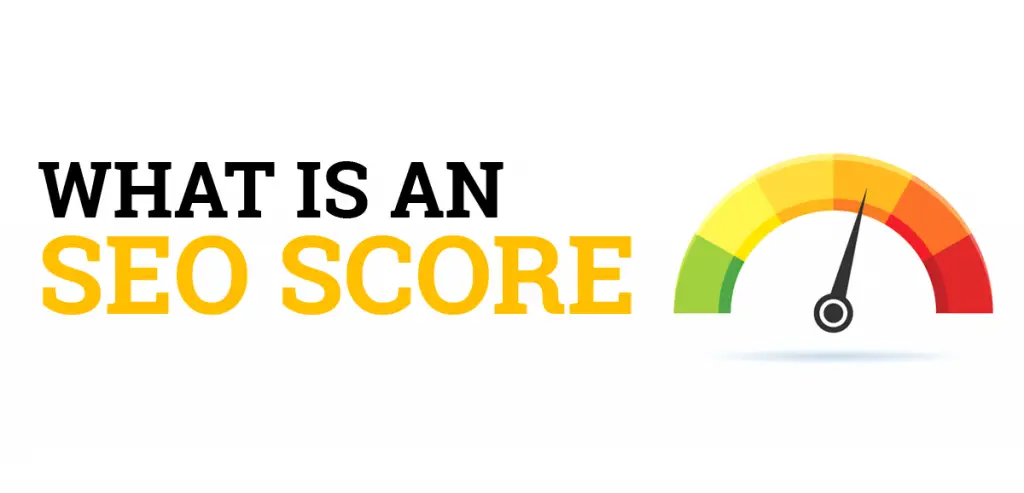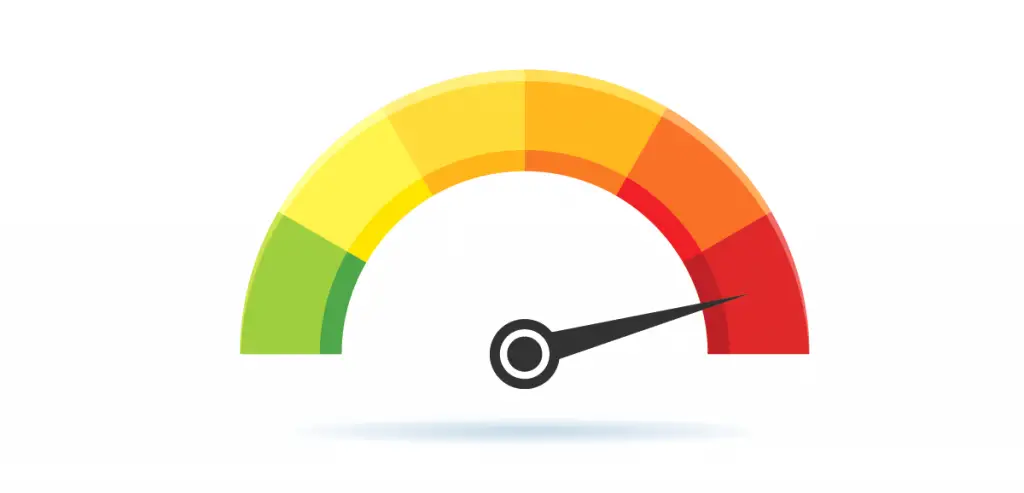In this guide, we’ll answer the question, “what is an SEO score?”
We’ll also go over the top SEO scoring factors, how to check your website’s SEO rating, and explain what is a good SEO score out of 100.
By the end of this post, you’ll know everything about SEO scoring and how it impacts the organic rankings and traffic for your site. You’ll also walk away with expert knowledge on SEO rating factors that can be improved to increase the SEO grade for your website.

What Is an SEO Score?
An SEO score is a measure of how well the technical aspects and user-facing elements of your website contribute to search engine optimization. SEO scoring is ranked on a scale of 100 and the SEO rating is based on factors that affect crawlability and ranking performance.
A high SEO score means that your website meets the quality standards for good search engine optimization while a low SEO score indicates technical and user experience issues.
Although Google’s algorithm doesn’t take your SEO score into consideration when indexing and ranking your website, a good SEO score is intrinsically linked to higher rankings and search engine visibility.
But how does SEO work to increase your score rating exactly?
Optimizing for the four areas of SEO scoring (technical SEO, content, user experience, and mobile usability) will often benefit your rankings in the search engine results pages (SERP) and are a core component of the process for how to do SEO analysis of a website.

What Is a Good SEO Score?
A good SEO score is between 80 – 100. SEO scores in this range indicate that your website is meeting the top quality standards for search engine optimization in the areas of technical SEO, content, user experience, and mobile usability.
SEO Scoring Factors
Your website’s final SEO score is determined by its performance in these four categories:
Technical SEO
Weighting Priority: High
Technical SEO is an important part of SEO scoring because it affects how well your site can be accessed, crawled, and indexed by search engine web crawlers like Googlebot.
If a site has severe technical issues, then it will not rank high on the SERPs no matter how good you make the content, user experience, or mobile usability.
Technical SEO problems can be a major roadblock to increasing organic traffic from Google, Yahoo, or Bing and often go unnoticed until you use an SEO rating checker or a technical SEO audit tool to measure the performance of the site.
It’s good to make these types of checks and analyses part of your routine website maintenance process so you can increase your SEO score in the following areas:
- Search engine friendly URLs
- Website architecture
- Page speed
- Server response
- Indexability
- Broken links
Content
Weighting Priority: Medium
The quality of your website’s content is another important factor in your overall SEO score.
Search engine algorithms consider how well your content uses on-page SEO optimization, the structure of the page, how pages are linked together, and if it’s meeting the needs of your visitors through the measurement of various on-site metrics.
Websites with good SEO, relevant information, and visitor engagement are typically ranked higher by Google in the search engine results pages for their target keywords.
The following areas make up the SEO score for website content:
- Meta titles and descriptions for every web page
- The number of internal links and broken links
- The presence of duplicate content throughout the site
- On-page SEO factors like optimized heading tags, keywords in content, and image optimization
- User metrics like bounce rate, time on page, and average pages per session
User Experience
Weighting Priority: Low
Although this is a low priority for SEO scoring, search engines like Google still take user experience into consideration when ranking website content.
So it’s good to know what your SEO rating is for user experience and look for ways to improve this part of your SEO strategy.
The following factors are what make up the SEO score for user experience:
- Images are retrievable and load quickly
- Navigation doesn’t include too many links and has a click-depth of 3 clicks or less to get to any one page on the site
Mobile Usability
Weighting Priority: Medium
Google now uses mobile-first indexing for website content. That means your website must have mobile-friendly content or it will not rank as high for its target queries.
Mobile SEO checks measure how fast your website renders across a range of devices and the following aspects affect your SEO score:
- Responsiveness of the design
- Touchscreen compatibility for tapping and scrolling
- Page speeds load quickly for the user
How to Check Your SEO Score
To check your SEO score you need to enter the domain name or URL into the given field of an SEO checker and click “Check SEO Score”. The tool will scan your website and measure the user-facing and technical aspects of search engine optimization and report the SEO rating in a number format.
SEO Score Checker Tools
Ahrefs Site Audit Tool
Ahrefs performs complete SEO analysis to give you an accurate SEO score for your website. The search crawler goes deep into your site and tests it for over 100+ technical issues that could be affecting your organic rankings.
Semrush Site Audit Tool
Semrush allows you to scan your website for over 130+ technical and SEO mistakes and points out the top issues that need fixing to improve your site’s search engine optimization score.
SE Ranking
SE Ranking is an SEO score checker that can give you instant insights into the health of your website. You can analyze the overall health score, check Core Web Vitals, and get a list of the top detected issues based on their level of significance and prevalence across the website.
SEO Analyzer
SEO Analyzer gives your site a complete check to uncover errors that are hindering your content from achieving the top ranking positions on Google.
It also prioritizes each fix based on potential traffic impact and ease of implementation so you can speed up your ranking improvements.
Siteimprove SEO Score Checker
Siteimprove measures how well your website performs across a number of key SEO factors like content and technical setup and gives you recommendations on how to improve to increase your SEO score to get more search visibility on Google and other search engines.
Website Grader
Website Grader is more than an SEO score checker. It’s a free online tool that grades your site against key metrics like performance, mobile readiness, SEO, and security.
Woorank SEO Score Checker
WooRank scores your site on a 100-point scale that is based on 70 different criteria.
This checker will help you optimize and measure your website’s performance for the keywords that matter most for your search engine optimization.
SEO Score & Rating Summary
I hope you enjoyed this guide on what is an SEO score.
As you discovered, the answer to the question, “what is a good SEO score?” is 80 – 100. And if you work to improve the technical SEO, content, user experience, and mobile usability on your website, then you can increase the SEO rating to those levels.
There are also a number of SEO scoring tools available that can help you get the insights you need to make accurate decisions for better search engine optimization.

SEO Chatter is dedicated to teaching the fundamentals of search engine marketing to help marketers understand how to increase organic website traffic and improve search engine rankings.
